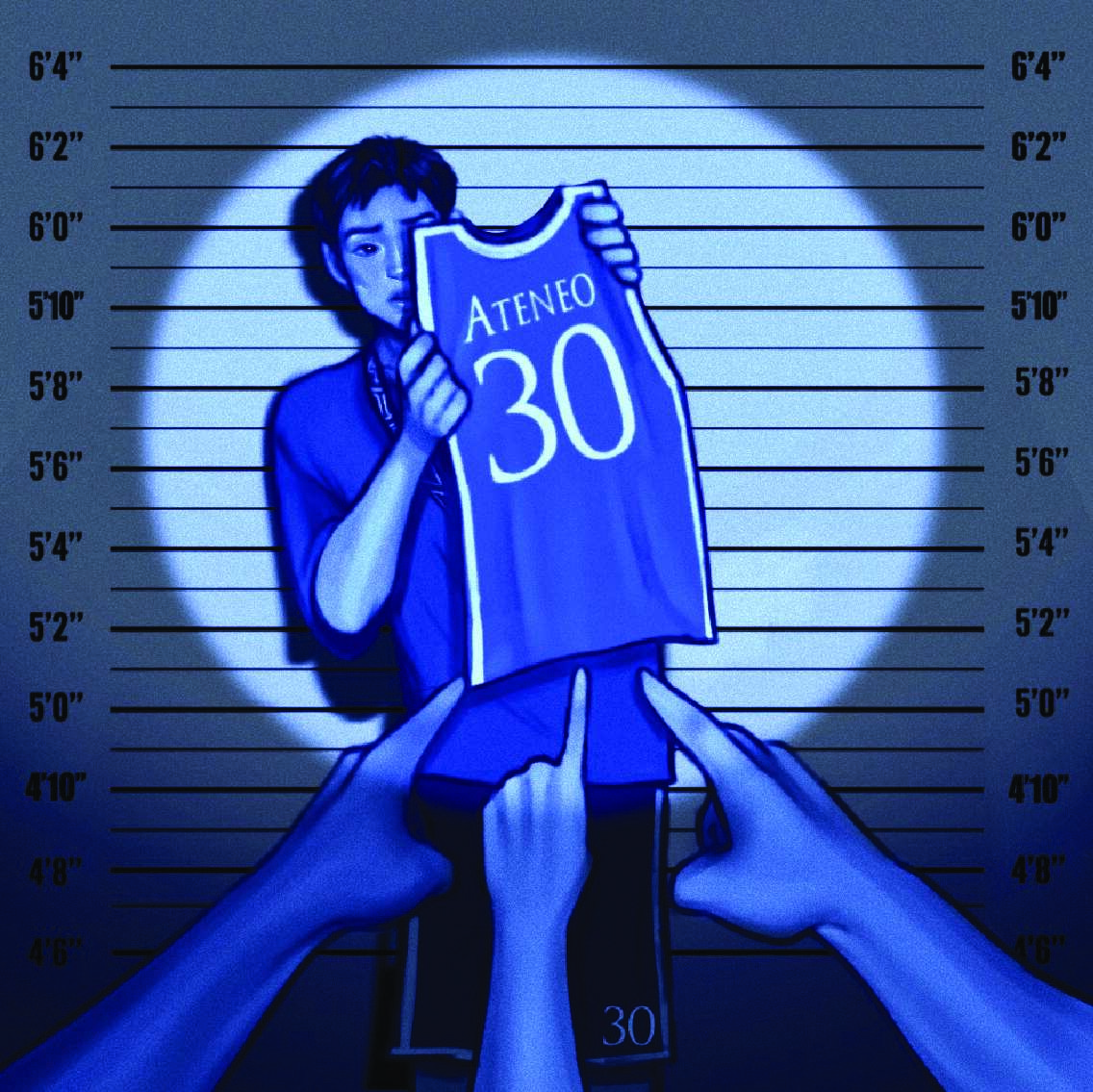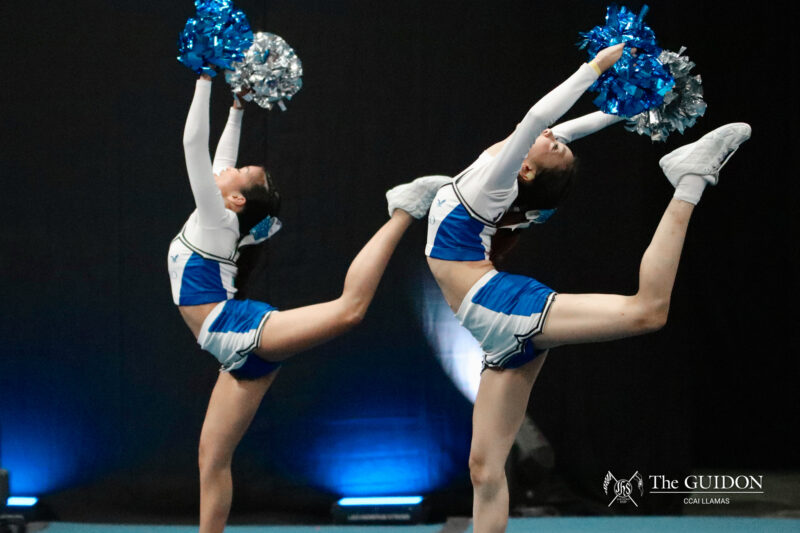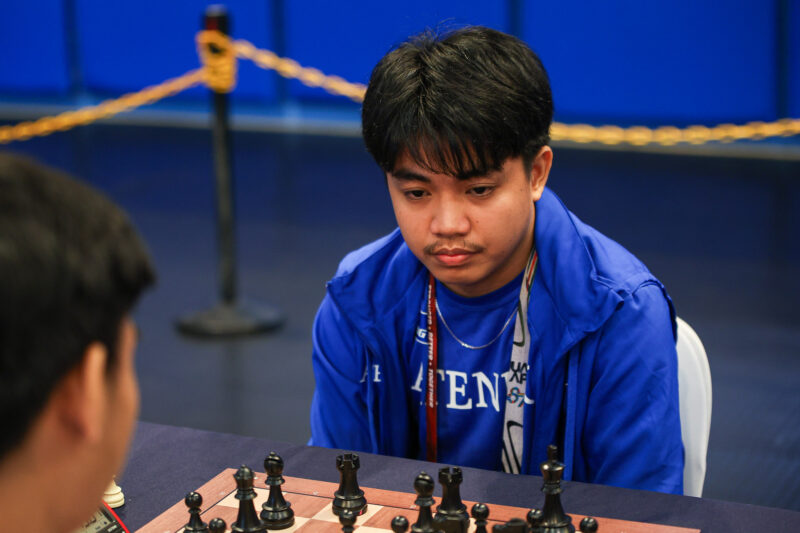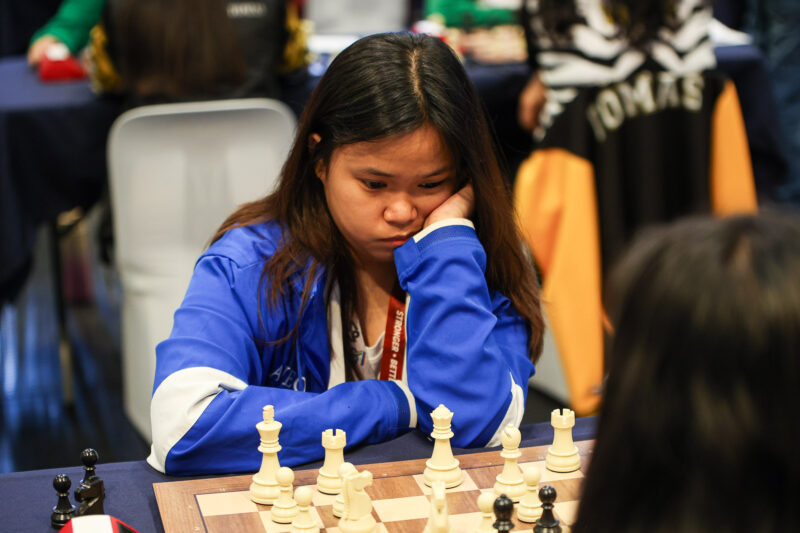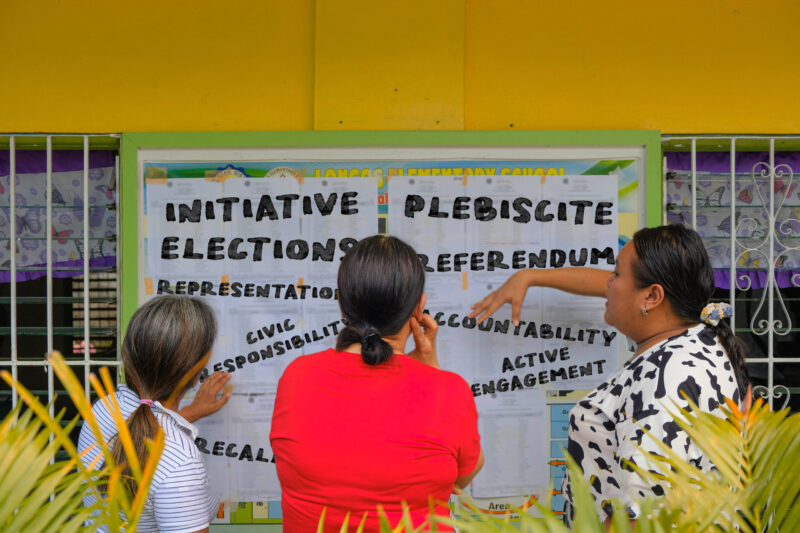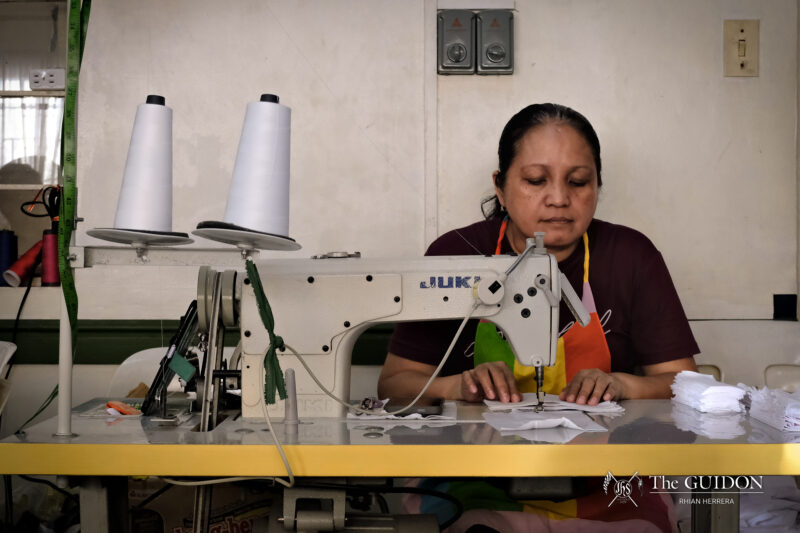THE LOCKER room is a symbolically significant space in the vast world of athletics. It serves as a haven for the team to form lasting bonds with each other before they go to battle on the court. Over the years, though, the closed doors of the locker room have become areas for darker themes to proliferate, with countless cases of sexual abuse and gender-based discrimination now plaguing the sports world.
Over the past few months, significant controversies surrounding sexual violence and gender discrimination have once again spotlightted this harsh reality. In the National Basketball Association, Miles Bridges recently pleaded no contest for the domestic abuse of his wife, while Joshua Primo faced his own case of indecent exposure. Locally, The GUIDON Sports just recently looked into the history of gender-based violence in the Philippine Basketball Association.
The matter that hit closest to home for the Ateneo community cropped up within weeks of the newest season of the University Athletic Association of the Philippines (UAAP). Former Loyola Schools Sanggunian Kara Angan President published an opinion article on Rappler about this case of sexual- and gender-based violence (SGBV) in collegiate sports. There, she disclosed information about an unnamed member of the Blue Eagles who reportedly faced 15 different alleged accounts of SGBV in 2021.
Angan’s piece sparked fierce debate about whether athletes such as those mentioned in the article should have any place representing our schools or if these issues should be kept off the court. However, the truth of the matter is that the sports world is never truly separate from life beyond the playing field. The values of our athletes must be taken into consideration over their sheer skill because of both the player’s and the school’s names on their jerseys.
The weight of a jersey
For many athletes in the Philippines, a successful college career is a jumpstart to a professional one, opening up an immense number of opportunities for them. Major responsibilities of this privilege, such as upholding the values of their respective schools, are then sometimes overlooked by players. However, to be worthy of representing the top university in the country is not just determined by athletic talent but also by their capability and willingness to uphold certain values of the school.
More importantly though, going beyond their roles as representatives, student-athletes must remain committed to ensuring safe spaces because doing otherwise violates women’s rights to respect and safety. Ultimately, athletes are people before anything else; they should not only consider how their actions affect themselves and their individual athletic careers but also how others are unavoidably affected as well. When they carry the torch of school pride, athletes should not selfishly walk over anyone along the way.
With the potential to impact the community at large, athletes’ roles go beyond simply winning games for their schools. They are in a unique position to influence the wider Ateneo community—both a gift and a responsibility that has to be taken seriously.
In 2020, The GUIDON Sports discussed an athlete’s power to inspire those who look up to them to talk about social issues. For example, former Blue Eagles such as Chris Newsome and Gretchen Ho sparked action about racial injustice and helping the less fortunate because they are citizens first and sportspersons second.
Just like them, all student-athletes have a platform that can be used for good, but if they contribute to a culture of sexual violence, their platform’s credibility comes into question and they are ultimately violating others’ safe spaces. Thus, their talent should not necessitate special treatment. As role models and representatives of the Blue and White, athletes need to be held accountable for their actions regardless of their skill.
Calling athletes to do better
Accountability is vital in ensuring safe spaces for victims so as not to silence them from coming forward. For one, athletes owning up to their mistakes by not brushing it to the side or completely ignoring it is the first step they can take.
Being accountable for their actions does not simply end at admitting their own faults since it also extends to accepting the consequences that follow. Public knowledge of SGBV cases will rightfully follow them the rest of their career in the public eye, just as much as their crimes haunt their victims.
Many critics attribute this harsh labeling to cancel culture and choose to sympathize with the guilty by holding the belief that others are simply trying to tear them down. However, these labels are simply the public’s own form of demanding accountability in a world where issues of SGBV are rarely done justice.
Moving beyond mere awareness, athletes have to do more than just acknowledge their faults in order to combat the hostile culture of SGBV in the sporting world. Given how deeply ingrained these issues are, it is imperative that athletes seek accountability and hold other perpetrators accountable. Their voice has the potential to spark change for future generations and eventually break the vicious cycle of SGBV for good.
Changing a troubled culture
While individual change in our athletes is vital, truly resolving the issue of SGBV in sports involves more than just any single person. Permanent change requires the collective effort of the sports community through their genuine reflection on how athletes are viewed and treated.
Thus, the key to the lasting upheaval of a sports culture that continually demeans women begins behind the closed doors of the locker room. For too long, the sports community has treated this world as isolated. Many even consume sports media as an escape from reality, but, when faced with the harsh truth that people’s lives are at stake, we should not turn a blind eye.
As fans of the game, we are used to rooting for athletes who push our teams and the school forward with their sheer talent. However, regardless of their skill, we must be mindful of when lines are crossed and the support given to them is undeserved. The idea that we can support the athlete without reinforcing what they stand for is an outdated notion. We must not excuse athletes because of their skill but instead hold them accountable in spite of it—talent is never isolated from the person, nor should it be treated as such.
Continued ignorance from the sports community regarding our athletes’ persistent environment of toxic masculinity and history of SGBVs will not lead to change or acceptance in our troubled culture. They will push the boundaries of what they can get away with behind the safety of their closed doors, continually led to believe that success is a just price to pay for their transgressions.

